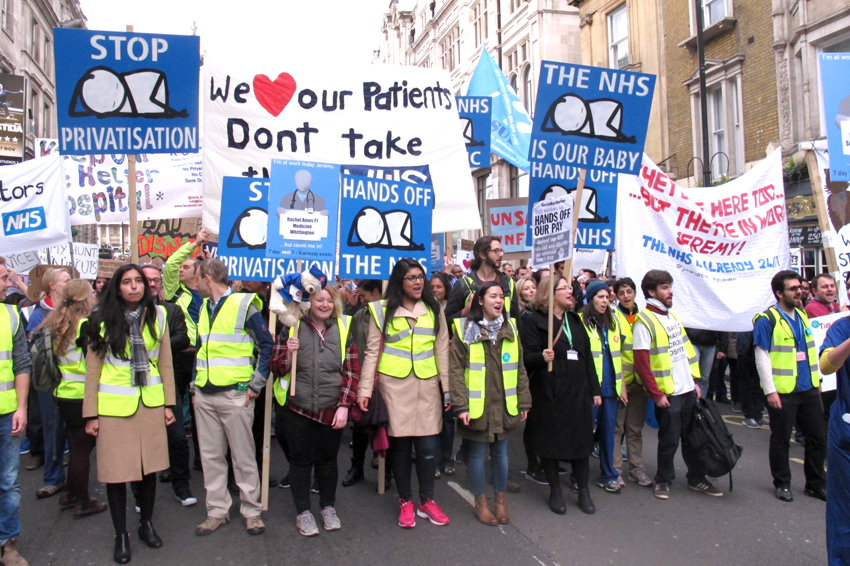
THE latest NHS workforce data is ‘not something the government should be proud of’, says the BMA.
Responding to the latest NHS workforce data BMA representative body chair and workforce lead Dr Latifa Patel said: ‘Today’s figures – which show a modest increase of the equivalent of 82 full-time doctors in England’s hospitals in the most recent month – mask what it’s really like on the ground in the NHS and just how stretched and understaffed our health service is.
‘This small rise comes nowhere close to what’s needed to address the chronic workforce crisis, with the latest doctor vacancy figures for England’s hospitals sitting at more than 10,000 – and is actually part of a long-term trend of dwindling staff numbers.
‘For example, separate figures today show we’ve lost the equivalent of more than 1,800 full-time, fully-qualified GPs in England since 2015.
‘This decline has coincided with a staggering rise in patient demand and workload.
‘In general practice, a record of nearly 62 million patients are now registered with practices in England.
‘For hospitals trying to work through the largest-ever waiting list of seven million people, the annual increase in hospital doctors is at the lowest it’s been for the last year, at just 2.8%.
‘Meanwhile, rises in the monthly figures are driven by an increase in trainees, but almost cancelled out by the huge numbers of senior doctors leaving – underlining the need to focus on retaining our skilled clinicians as well as recruiting new ones.
‘Yesterday, the new Prime Minister heralded rising numbers of doctors, but the government cannot kid itself into thinking that today’s data is the start of a workforce boom in the NHS, or that these figures are something to be proud of.
‘They’re not. Our NHS is woefully understaffed and patient safety is at risk.
‘We urgently need a comprehensive and funded health and care workforce plan from government – something that the now-Chancellor himself has consistently pushed for.
‘And for real change, we need a health service that people want to work in, and that means valuing staff by restoring pay, addressing punitive pension taxation rules, and giving them the resources they need to provide the care patients deserve.’
- Responding to the latest NHS England workforce sickness absence data, RCN Interim Director of Nursing, Helen Whyley, said: ‘It should be sounding alarm bells in the office of the new health secretary when more than one in five of the days lost to sickness in the NHS in England are due to stress, anxiety, and depression.
‘It comes as no surprise with more than 47,000 nursing vacancies in the NHS in England, record waiting lists, and patients being treated in corridors. Nursing staff are being pushed to the brink.
‘When pressures at the start of summer leave so many staff off sick, it raises real concerns about what will happen when the winter crisis begins.
‘Ultimately, these pressures can only begin to be addressed with investment in the nursing workforce that has been neglected for too long.
‘We are now entering the final week of our ballot on strike action, which will send a clear message to government to protect nursing and protect patients.’